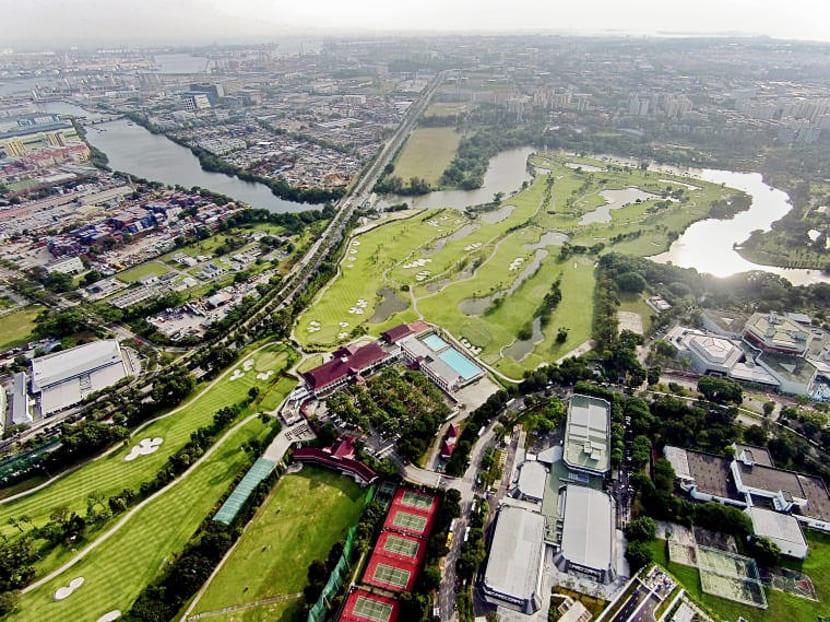LTA may be given powers to enter land, buildings in construction of cross-border rail
SINGAPORE — The authorities are set to be given teeth to conduct surveys or works on land or buildings in or outside areas required by the Singapore-Malaysia rail links, under proposed laws tabled in Parliament on Tuesday (Oct 3).

TODAY file photo of an aerial view of the Kuala Lumpur-Singapore High Speed Rail terminus at the site occupied by Jurong Country Club. Photo: Mugilan Rajasegeran/TODAY
SINGAPORE — The authorities are set to be given teeth to conduct surveys or works on land or buildings in or outside areas required by the Singapore-Malaysia rail links, under proposed laws tabled in Parliament on Tuesday (Oct 3).
The Cross-Border Railways Bill will give the Land Transport Authority (LTA) the power to enter such spaces in the railway area to carry out work, such as pre-construction surveys or digging, to determine if the soil is suitable for building, maintaining or improving railway infrastructure.
Owners or occupiers must be given at least two weeks’ notice.
The LTA can also enter land or buildings in or outside the railway area to inspect or survey the land before or during construction, maintenance and improvement work.
The statutory board will also be allowed to conduct preventive and remedial work, and inspect railway infrastructure and carry out maintenance.
While aiming for “as little damage as possible”, it will compensate affected parties for any damage caused. In such cases, at least a week’s notice must be given, unless an emergency warrants immediate entry or if entry is needed only for an inspection or survey.
The Bill comes ahead of development of the Kuala Lumpur-Singapore High Speed Rail (HSR), which will run, for the most part, above ground in Malaysia and underground in Singapore. It is unclear if the line will run under any privately held land in Singapore.
Spaces such as the Jurong and Raffles country clubs will be acquired for the rail link’s facilities, the Government announced previously.
A Rapid Transit System connecting Woodlands in Singapore to Bukit Chagar in Johor Baru is also in the works, with construction set to begin in 2019 and wrap up by the end of 2024.
The Johor-Singapore service will be connected via a high bridge across the Straits of Johor.
In a press statement, Singapore’s Transport Ministry said on Tuesday the Bill will support both rail links.
Under the Bill, persons who refuse access to, or obstructs entry by authorised personnel can be fined up to S$1,000.
The railway-assets operator must receive an operating licence before providing open network services to a train-service operator, which must hold a cross-border train-service licence.
The LTA will also be able to issue codes of practice on operational safety and other areas.
It can also issue directions to be followed by licensees in areas such as running and maintaining the cross-border railway, user and worker safety, and measures to tackle emergencies such as fires, epidemics or floods.
Flouting directions may result in penalties such as the suspension or cancellation of a licence, or a financial penalty of up to S$1 million or 10 per cent of a licensee’s yearly revenue during the last financial year, whichever is higher.
The LTA may also make a “provisional order” where less regulatory action is warranted. Licensees may lodge appeals against certain decisions with the Transport Minister within two weeks of receiving notice of the decision.
Licensees must tell the LTA immediately about industrial disputes with their employees or fires within premises where it operates under the licence. They must also do so for proceedings or claims made against them that could have an “adverse effect” on their financial condition or performance.
On the security front, the Transport Minister may order the suspension of train services if there is a “serious and imminent risk” to travel.
The suspension will be lifted only with the minister’s green light.
The Bill also allows for a cross-border railway security agency to be appointed.








